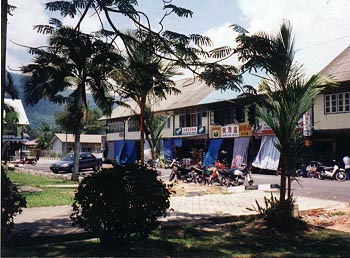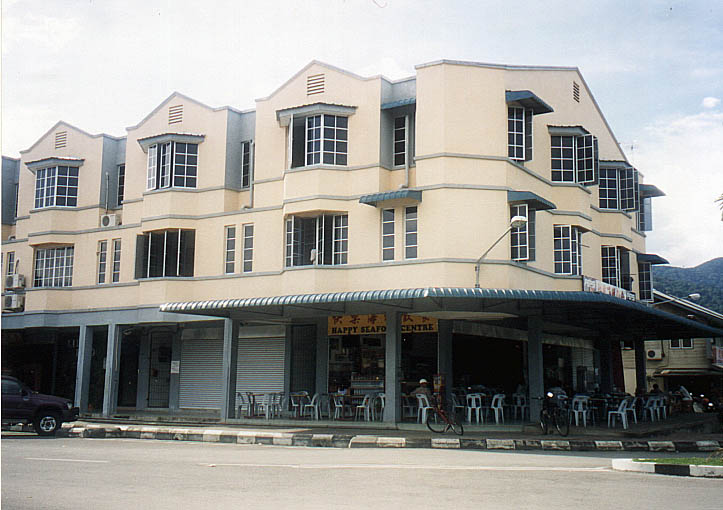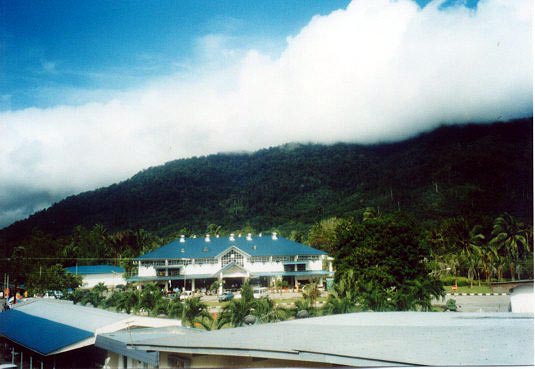Within Lundu Town.
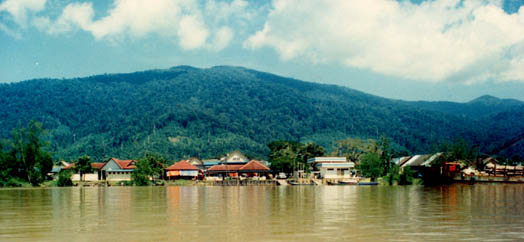
The Malay word for "town" is pasar. This derives
from the Persian bâzâr, and means "market." People say, "I'm going
down to the pasar," in Malay, Iban, Selako, and English (or, alternatively,
in English, "I'm going down to the bazaar") as often as they say, "I'm heading
for town." The market is the town, the town is the market. Few people
actually live in the pasar except for the (usually Chinese) owners
of retail businesses and coffeshops, and their families. Everybody else
lives outside the pasar, in one kampong or another, or in a house on a separate
plot.
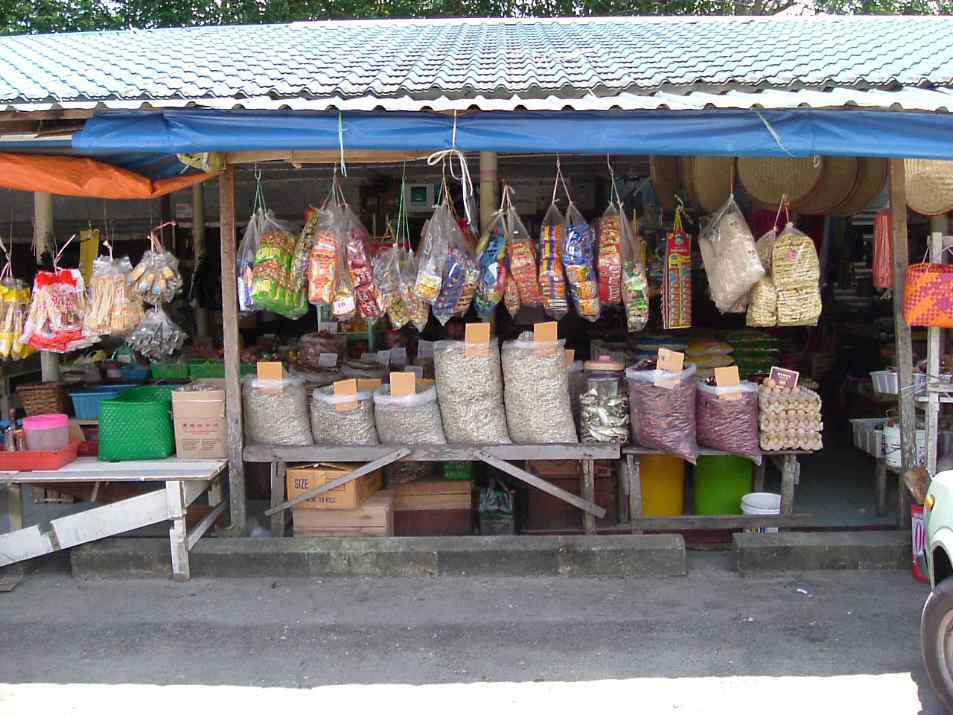
An open shop at the Dry Market. As the name suggests, the Dry Market is where things like salt fish, beans, rice, coffee, and sundries are sold.
